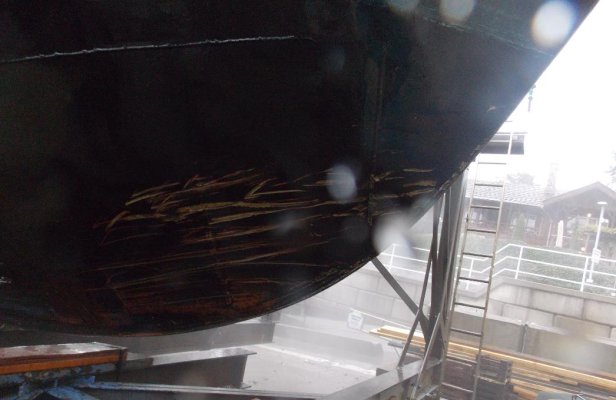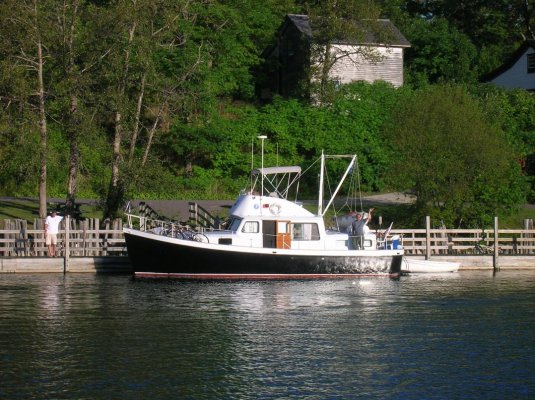Capt. Kirk
Veteran Member
- Joined
- Jun 9, 2020
- Messages
- 45
- Location
- United States
- Vessel Name
- "At Last" and "Coquina Cat"
- Vessel Make
- 48’ Offshore Yachtfish and 27' Glacier Bay
I looked for a thread on this subject in TF and I was surprised not to find one. Probably just user error on my part.
I'm planning to buy a trawler in the 45' to 60' range. Searching for the right boat. Almost all the boats I have considered to date are fiberglass, but I am intrigued by some steel boats.
I'm a big fan of fiberglass boats and have owned many thru the years. I've also owned a number of small wooden boats, but would avoid buying a large wooden cruising boat, given the maitennace requirements. I've never owned a steel boat.
What are the drawbacks to steel? What are the maitenance considerations?
Here are some of the things I've heard:
- You need to keep all the bilges bone dry.
- You need to keep on top of painted finishes and immediately touch up any exposed spots.
- It is harder to find boat yards to work on them.
How about the pros? What makes steel better than fiberglass?
I imagine a steel hull would be preferable to FBG in many groundings.
It is easier to cut out and replace a section with steel than FBG.
What else?
What are other considerations?
Insulation?
Electrolisis?
Maitenance issues?
FYI - I am okay with rugged looking. I prefer strong and durable to pretty.
Looking forward to your input.
Thanks.
I'm planning to buy a trawler in the 45' to 60' range. Searching for the right boat. Almost all the boats I have considered to date are fiberglass, but I am intrigued by some steel boats.
I'm a big fan of fiberglass boats and have owned many thru the years. I've also owned a number of small wooden boats, but would avoid buying a large wooden cruising boat, given the maitennace requirements. I've never owned a steel boat.
What are the drawbacks to steel? What are the maitenance considerations?
Here are some of the things I've heard:
- You need to keep all the bilges bone dry.
- You need to keep on top of painted finishes and immediately touch up any exposed spots.
- It is harder to find boat yards to work on them.
How about the pros? What makes steel better than fiberglass?
I imagine a steel hull would be preferable to FBG in many groundings.
It is easier to cut out and replace a section with steel than FBG.
What else?
What are other considerations?
Insulation?
Electrolisis?
Maitenance issues?
FYI - I am okay with rugged looking. I prefer strong and durable to pretty.
Looking forward to your input.
Thanks.


